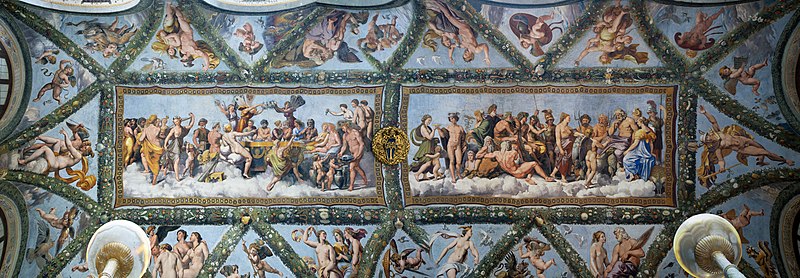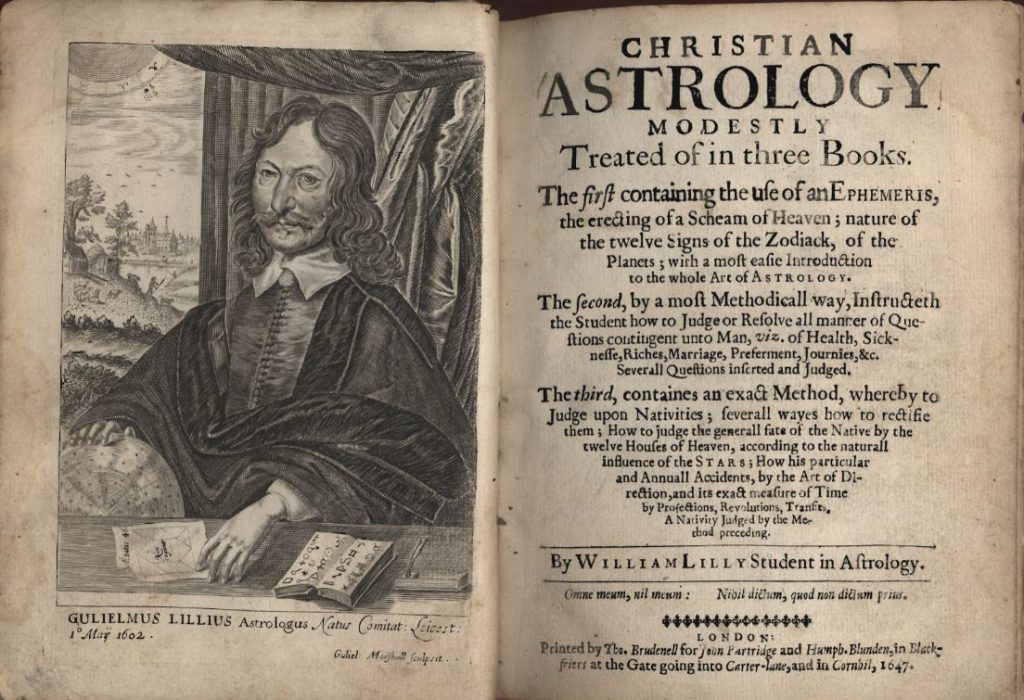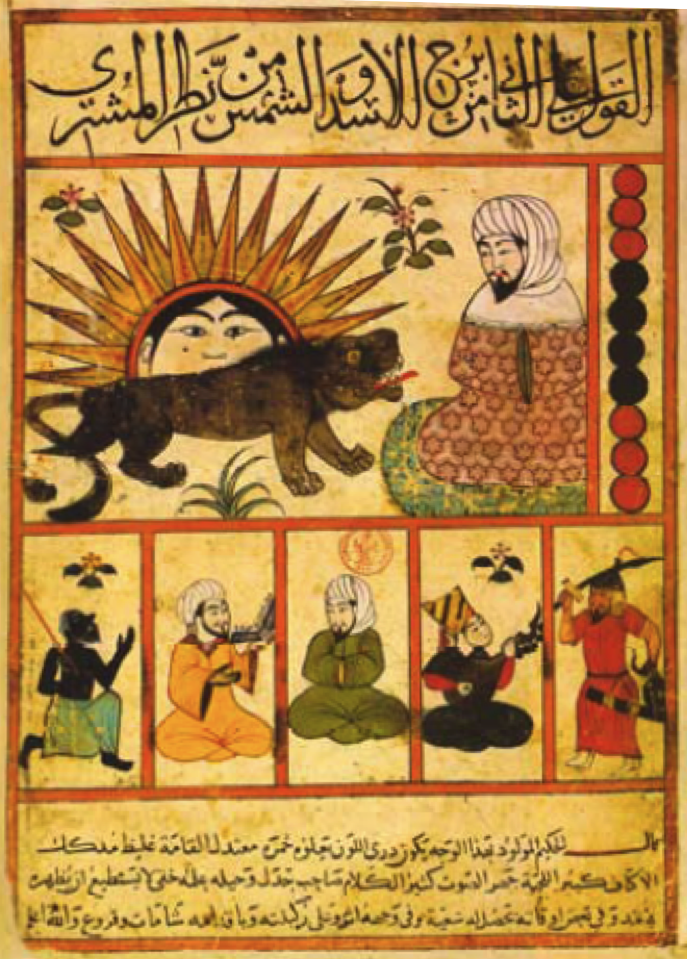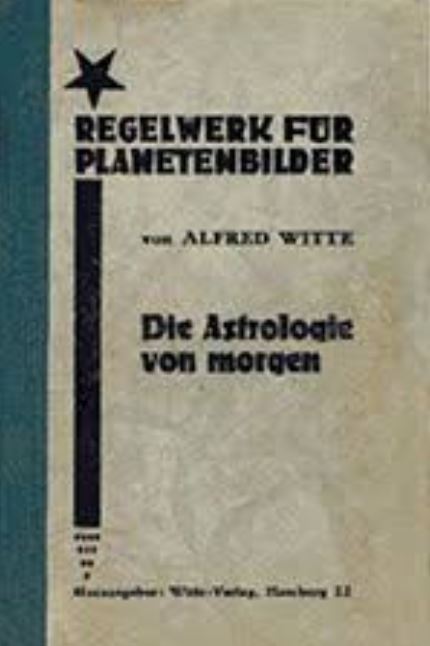Neoclassicism vs. Modernity in Astrology. Thoughts and considerations on the use of the terms classical and modern astrology.
Related articles: The Navagraha Temples and other places related to Nadi Astrology, Lying vs Flying or Centripetal vs. centrifugal forces at the Leaning Tower of Pisa, Das Odeon des Herodes Atticus und das Ideal der Hochkultur,
Neoclassicism vs. Modernity in Astrology
The Greek gods deliver the background on which European modernity has taken place in the times of Roman culture, in El-Andalus and the renaissance, humanist, romantic, neo-classical and even in the post-modern eras. All through these different ages the moment when the images and motives of the gods have been instrumentalized for “classicist” purposes they were killed for “fashionism” and “classicism”.

Raffael`s depiction of the Assembly of twenty gods, predominantly the Twelve Olympians, as they receive Psyche is not timeless – it is a treatment of the subject from the point of view or say “mode” of a specific period. The Greek gods deliver the background on which European modernity takes place. But the moment when they are instrumentalized for classicist purposes they are killed for modernity. This also means that the aspects of modernity contained in Greek mythology : the permanent variation of mythological stories, the caricature of the gods, the criticism of their behaviour are elements of emancipation which are neglected by a neo-classicist treatment of Greek mythology which tends to remain stuck in playing with romantic or even pseudo romantic glorification and idealization.

There is by the way a definition of modern astrology – just to differentiate the modern from the fashionable. Modernity signifies abstraction of the fashionable and the mechanical use of the classical in order to understand the delineation, abstract impact and fuller meaning of methods, mechanisms of attitude and interpretation.
When using the words modern and classical without understanding that to some extent even a William Lilly and to a larger extent a Claudius Ptolemy, Abu Mashar and Morin de Villefranche were modern astrologers at their time – one would reduce the meaning not only of the terms but of their astrology itself.

Adorno saw the reflection and allowance of the “I” as the major achievement of modernity in the period of “The Modern” in the literature and art of the late 19th and early 20th centuries.
The role of the “I” in astrology is negative in many ways when used for the subjectivism by “astrologers” to overwrite the outlook on the actual meaning of results from an astrological method with their own subjective standards of knowledge and their personalities.
But modernity as an attitude of being in one`s own presence (the here and now) and not in the past is substantial in reflecting the responsibility of the individual astrologer to understand the fuller, abstract and holistic relevance of interpretations and conclusions even where the modern of the classical has long been overwritten through the fashionable of the past.
Emancipation from fashionable, hierarchical, bourgeois, ideological, dogmatic and commercial patterns that have overwritten the modern of the classical is the main responsibility of the individual astrologer.
This achievement could lead to evaluation as a self-responsible application of classical knowledge in chart reading by the individual astrologer. Evaluation without understanding the derivation of classical patterns is irresponsible especially if the astrologer does not recapitulate the limitation of his/her understanding.

Alfred Witte`s “The Astrology of Tomorrow”. Retracing the abstract, systemical aspects of the classical approach through emancipation from classical methods and perspectives was the merit of Alfred Witte´s work. His findings and the Hamburg School of Astrology based on his teachings are also known under the name of “Uranian Astrology”. But today the astrology of Alfred Witte is not felt as modern anymore. Especially not when compared to post World War 2 astrological psychology and systemic, structuralist astrology Witte has to be treated as classicist in some ways especially his “Rulebook for Planetary Pictures” as it delivers a classical form of rules for interpretation instead of keys to a structural, abstract understanding of the systemic significance and role of the signs, planets, houses a.s.o..
The Latin word “classical” originated in the roman tax system and the superiority of the highest class to the lower classes. Later the term “classical” was corrupted into referring to the superiority of a class system that holds what has been known as the highest class in the past as the eternally highest representative of what is then treated as the original ideal of a tradition. The effect is that the term is reduced to the establishment of a hierarchy which treats formal elements superior to essence. The alibi of “Classicism” from thereon contains a tendency to degenerate the core issues of astrology to using the classical knowledge for the construction of the authority of a class system – which itself at the moment of its constitution may even have been modern in itself even. But the effect of the use of the term classical contains the tendency to demand hierarchical supremacy. Schiller and Goethe for example with their extreme Pluto aspects applied the term “classical literature” to install a hierarchy based on the supremacy of aristocracy over bourgeois literature for fear of the superior philosophical relevance of Voltaire, Rousseau and the French Revolution.
